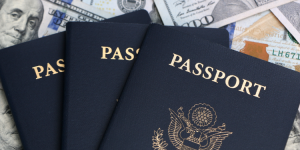
Where are you from, Ju, and what are you doing nowadays?
I am a 32 years old French guy. I work as an IT consultant in Germany. I grew up in a very small and isolated town. I was pretty shy and low-minded until I reached my majority. When I left my hometown, I had to work hard to catch up with life. For example, I didn't even know how to small talk or use public transportation. Taking the following years as a lifetime in France, they weren't much different in my interests, in my opinions and in my occupations compared to today in Germany. So I've been learning for a while, but I didn't change my mind through my expatriation. Thus, my life today is definitely more valuable than it would be without the act of expatriation.
Why did you choose to move to Germany?
Remember that I had to catch up with life. So I intentionally traveled a bit around Europe starting from my student time. I met interesting people and noticed different interesting places and cultures. Germany seemed attractive regarding my field of expertise, that is to say Information Technology. But it didn't come to my mind to expatriate yet. Years later, I got bored of working in France. Looking for a new challenge, I jumped on that job opportunity: a position based in Germany requiring some intercultural communication skills in German, English and French. Although I later didn't stick to that job, I'm still sticking to that combination of IT, German lifestyle and international relationships.
What were the procedures to follow to for a French national to move there?

Expat Blog is a good reference to start with if you don't know what you are looking for. The French Embassy in Germany then provides you with details and updates. Basically, you first have to tell the French tax authority that you are expatriating, when and where, so that they can contact you. In my case, I gave my employer's address as I already had a job, but no accommodation. Then, you need to open a German bank account and subscribe to a German health insurance. Otherwise, you can't get paid for your job. As soon as you get an accommodation, you must immediately register (within 3 days) to the German residence authority. You still have further legal obligations such as subscribing to a public health insurance and registering with the Germany tax and social authorities. My tip: find a job before moving and ask your employer for help!
How long have you been in the country?
I moved to Germany over 7 years ago now. I am married and I have a young child.
Was it difficult to find accommodation there? What are the types of accommodation which are available there?
Stuttgart has, after Munich and Hamburg, the most expensive rents in Germany. If you are financially safe, it isn't a good idea to buy an accommodation at the moment. Because even if the rate is still growing up, prices are currently too high and investments at risk. As a student, you'd better look for a low rent like for example a student residence (Studentenwohnheim), a shared residence (Wohngemeinschaft) or a combination of both (Studenten-WG). Elsewhere, you will have to pay about 10 euros per square meter per month (excluding charges) for renting an apartment. Most of the offers are set by real estate agencies which charge about 4% for having established the link between you and the owner. Although it is much money, don't expect more service from them. I would advise that you write your own request and use your own network!
How do you find the German lifestyle?

As Germany has a central place in the European history and economy, it has become a very open and dynamic country with much diversity and many opportunities. Here, you can learn and experiment a lot. You can also catch up with many different cultures and activities. You don't have to speak German before expatriating, but you should consider learning it quite soon. As life is pretty much under control, you may not have so much time for relaxing and creativity unless you don't need much sleep or are much disciplined. Otherwise you just tend to rule and plan a bit more than chill and improvise.
At work, anyone has the opportunity to give his opinion and take some responsibilities. In some points, Germany isn't so modern and flexible. For example, I noticed that many Northern people don't care much about their health as opposed to their job, and that many Southern people drive to the office by car although it would be cheaper, faster and cooler with public transportation.
Have you been able to adapt yourself to the country and to its society?
Yes, but I confess that learning the language was a very hard work.
What does your every day life look like in Stuttgart?
Let me tell you about a typical Saturday because my professional life is hard to describe. Like many German people, I wake up, eat and go to bed earlier than I would do in France. One of the reasons for that is that sunrise and sunset are occurring a little bit earlier. So I wake up at 7 am and go to the baker to buy different sorts of little round fresh breads with my child. Then, we have breakfast for about one hour or two. We usually cut each bread once horizontally and fill it like a French sandwich with substantial ingredients like for example cheese, salami or salad. I confess I still eat butter and marmalade as well.
Breakfast is more important that lunch. During breakfast, we are planning the day. This covers stuff like household chores and shopping but also going for a walk and meeting friends. Then DHL rings the door bell. I don't know how but DHL rings every Saturday for delivering something that we ordered. We probably buy much online and DHL probably know much when we are at home. Late afternoon is family time. As we don't eat much for lunch, we are already getting hungry and usually cook something delicious that we will eat around 6 pm. Evening is then a social (meeting friends) or a cultural (movie/book/internet) time.
What has surprised you the most at your arrival?
I was surprised at how different France and Germany are in some points although the countries are so close to each other in some other points.
Any particular experience you would like to share with us?
Never lie to German people even for fun. They will believe you and they won't understand what should be funny with making a joke of a lie!

What is your opinion on the cost of living in Stuttgart? Is it easy for an expat to live in the country?
The cost of living in Stuttgart is comparable to the cost of living in Paris. Except for transportation and accommodation, it is affordable to live there if you have a well-paid job. But in my opinion, Stuttgart is not the best choice (compared to Berlin or Hamburg) for an artist, a student, a small job or an entrepreneur. Don't hesitate to negotiate as long as your are in the position to do so. Companies find it difficult to find committed people and will possibly not give you a second chance to express your salary expectations!
How do you spend your leisure time there?
Mostly with my family and sports.
What are the differences between life in Germany and in France?
Some parts of the highway do not have speed limits and there is no serious regulation by rainy weather. The size of the vehicle usually determines who has priority. Traffic lights get orange before going green and you may be horned if you are waiting for a green light. Some people have no problem with driving over fresh red traffic lights or with driving after having drunk two or more beers.
Like other European capital cities, Berlin is a lifelong museum. There are so many different dialects, depending on the region. Many cities have been destroyed by over 80 percent during the 2nd world war. Public transport infrastructure is very well developed. German people will greet you physically only if you didn't meet for a while. They do know more about foreign people and countries than they do about themselves and their country. They are mostly willing to help so as to give a good impression on themselves. They don't waste their time with compliments.
As regards everyday life, most bottles are sold with a refundable deposit (but you will never claim for it in front of people you are meeting for the first time). Although tap water is clean, you do drink industrial water (even if still mineral water is preferred to sparkling water). Also, never take the last piece of food from a plate: it is toxic! There are indications on almost everything (here the soap, here the tissue, here the toilet brush, here how to use it...)
Instead of being paid at the end of the year like in France, taxes are charged from your salary and you may only claim money back (if you have reason to do so) at the end of the year. Unfortunately women don't receive enough recognition at work. It is common to have a manual time tracking management system at the office and go through heavy holiday approval processes. As a normal employee, it is absolutely natural to approach a CEO whereas it is something quite special in France. Basically, you usually don't wait for your boss to tell you what to do because he is expecting you to show him that he can count on you. It is usual to help each other for the sake of the company. If you are doing only your job, then you are not doing your job.

Do you miss your home country?
Yes I do. But I don't miss things like food or way of life much. I rather miss the French language, French talks and French songs. Stay in touch with your family and friends in your home country. This way, you will better realize your achievements and get proud of them!
Would you like to give any advice to future expatriates?
Don't under-estimate the personal investment linked to an expatriation. Therefore, avoid moving to a country that you never or just shortly visited before. It will be much easier to get prepared if you have at least 1 or 2 experiences and contact persons there. Go study to Germany for a semester or, if like me you can't afford it, then look for a an internship or a small job.
What are your plans for the future?
Maybe relocate to another place inside Germany for professional reasons.




















Comments